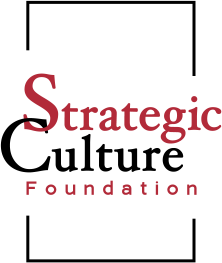Father [FDR] broke in. "Yes. Those Empire trade agreements are a case in point. It's because of them that the people of India and Africa, of all the colonial Near East and Far East, are still as backward as they are."
Churchill's neck reddened and he crouched forward. "Mr. President, England does not propose for a moment to lose its favored position among the British Dominions. The trade that has made England great shall continue, and under conditions prescribed by England's ministers."
"You see," said Father [FDR] slowly, "it is along in here somewhere that there is likely to be some disagreement between you, Winston, and me."
"I am firmly of the belief that if we are to arrive at a stable peace it must involve the development of backward countries. Backward peoples. How can this be done? It can't be done, obviously, by eighteenth-century methods. Now-"
"Who's talking eighteenth-century methods?" [Churchill]
"Whichever of your ministers recommends a policy which takes wealth in raw materials out of a colonial country, but which returns nothing to the people of that country in consideration. Twentieth-century methods involve bringing industry to these colonies. Twentieth-century methods include increasing the wealth of a people by increasing their standard of living, by educating them, by bringing them sanitation-by making sure that they get a return for the raw wealth of their community."
The Death of FDR and the Ushering in of a Cold War Era
Upon the death of FDR on April 12, 1945 and the end of WWII on Sept 2, 1945, Churchill immediately dropped any significant meeting or discussion with Stalin. Churchill outright refused to meet with Chiang Kai-shek in public even when FDR was alive, and thus all communication between the "Big Four" was over. And after less than one year had passed since the victory against fascism that threatened the world, towards which the Soviet Union and China had contributed vitally to and suffered the greatest from, Churchill would announce the fall of the Iron Curtain on the Soviet Union.
The passing of FDR left the 'joint declaration' that was made between FDR and Churchill expressed in The Atlantic Charter to turn to ash, as Churchill made no further attempt to honor it. The United Nations would be formed, but not under the principle that Roosevelt envisioned, which would be a balance between East and West by the "Big Four". Instead the United Nations became American and Western European centric, allowing for a divide as seen under the Iron Curtain, the very opposite of what FDR had envisioned.
As President Roosevelt was laid into the ground, the British and Dutch were allowed to re-enter Africa, Indo-China, Indonesia and other colonies on the brink of their independence, only to be re-colonised.
The new de-facto President Truman, who replaced Henry Wallace as FDR's Vice President in 1944, had no problems doing what Churchill instructed him to. Japan was the first country in history to be attacked by an atomic bomb, even as that nation was entering terms of surrender. It would be launched and approved by Truman, not only once but twice in Hiroshima and Nagasaki only 3 days apart, on August 6th and 9th of 1945. Major re-arrangements under Truman occurred, including the dismantling of the Office of Strategic Services (OSS), American Foreign Intelligence at the time, no later than 18 days after WWII was officially over and was later replaced by a more Anglophile CIA two years later (expunged from all FDR loyalists who were largely targeted as Commie sympathizers). The US would have no officially recognised foreign intelligence for two years while this shifting of internal chess pieces occurred in the shadows.
Under Truman, the United States entered a nuclear stand-off with the Soviet Union which would divide the world for the next 40 years.
The next move addresses the side comment I made earlier of Churchill threatening the American people that "their dead president could protect them no longer". Within a year of the Iron Curtain speech, as part of the Red Scare, President Truman in 1947 would sign an executive order to screen federal employees for association with organisations deemed very generally as "totalitarian, fascist, communist or subversive". This was a direct violation of what FDR had originally implemented as the Four Freedoms, which were 1) Freedom of Speech 2) Freedom of worship 3) Freedom from want 4) Freedom from fear for all people.
Under the executive order, undermining the power and authority of the state included anyone who dared question the actions of the state. It should not go unnoticed that in situations like these semantics and double speak are rampant and often what is labelled "fascist" activity is the basic right of free speech and those that label it "fascist" are the perpetrators of the accused crime.
The Red Scare was a terror unleashed on the American people, to the point that they are still recovering from its effects today. No one was free to express their thoughts or opinions on a subject without the concern that a co-worker, a neighbour, your child's teacher, your partner, even your own daughter or son could report you to the authorities for holding or expressing questionable or subversive thoughts. A country that not that long ago prided itself as the 'Land of Liberty' had quickly fallen under the rule of the same form of tyranny they had fought against in WWII.
What happened?
(Note: You can view every article as one long page if you sign up as an Advocate Member, or higher).





